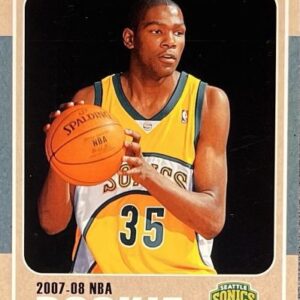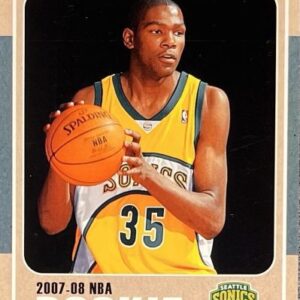In the zany and unpredictable world of collectibles, where nostalgia and rarity form a potion potent enough to summon staggering auction prices, a remarkable slice of 1960s pop culture has broken records. A treasure from the past, a box set of 1967 Wacky Packages, has achieved a new high by fetching a record-smashing $79,300 at a Heritage Auctions event. This sale not only eclipses the previous record of $63,084 set just last year but also underscores the relentless demand for rare non-sports collectibles fueled by nostalgia and timeless charm.
Emerging in the groovy 1960s, Wacky Packages were the rebellious children of Topps, known for playfully skewering popular grocery brands with satirical flair and a hearty dollop of whimsy. This brainchild of Topps captured the vivacity of the counterculture era by lampooning everyday goods in a manner reminiscent of cartoon strips—one that was both irreverent and affectionate.
What adds another layer of intrigue to the Wacky Packages is their connection to notable artist Art Spiegelman, who later gained literary acclaim for his Pulitzer Prize-winning graphic novel, Maus. Spiegelman’s early contributions lent these stickers a cultural touchstone, one that turned grocery shelf staples into comedic art with just a hint of adolescent rebellion.
The original 1967 series, featuring 44 cards, was an invitation to childhood mischief. The punch-out cards begged to be tucked away in lunchboxes, traded on schoolyards, and, of course, mischievously stuck to every visible surface. However, the lighthearted fun quickly made way for controversy. The satire, while innovative, did not sit well with all the parodied brands. Icons such as the stoic Jolly Green Giant, the ever-popular Ritz crackers, and the effervescent 7-Up weren’t exactly thrilled to find themselves visualized through a comic, satirical lens.
Legal skirmishes ensued as companies objected to their products’ whimsical portrayals, leading Topps to swiftly pivot. They replaced a dozen cards and expanded the collection from 44 to 56 cards, quickly turning a potential stumbling block into a strategic expansion of their flagship parody collection. Once the legal skirmishes dissolved, Topps doubled down on their quirky product with the 1969 “Wacky Ads” and later, in 1973, reinventing the series with peel-and-stick stickers—companions to scribbled notes and doodled hearts in countless school lockers.
Despite going on a hiatus from 1992 until 2004, the allure of Wacky Packages endured, drawing newer generations into the fold, each rediscovering the infectious blend of humor, satire, and collectibility. These stickers, in all their tongue-in-cheek humor, managed to rival the appeal of traditional baseball cards.
The recent jaw-dropping auction is more than just a financial transaction; it speaks volumes about the broader collectibles market and its infatuation with the past. The result is both startling and instructive. It reiterates how pieces linked to cultural memory and historical whimsy are climbing in value, much to the pleasure of nostalgia-driven collectors. Enthusiasts and investors alike are scouring attics and basements for forgotten memorabilia, yearning to capture—and perhaps even profit from—the ephemeral joy such items evoke.
But here’s the kicker: beyond the monetary evaluations lies a collection that crystallizes an era, a testimony to a time when humor met everyday life with irreverence and style, energizing even the most mundane product on a supermarket shelf into something both remarkable and collectable.
Indeed, the Wacky Packages’ ascent to the near-astronomical price of $79,300 at auction is more than just a story of financial gain. It is a tapestry intertwining artistry, humor, controversy, and memory—a vivid reminder of a bygone era that still sparks joy and laughter.
Within this seemingly inconsequential box lies the magic of what collectibles encapsulate—a slice of life, humor preserved in flat shiny stickers, an intersection of commerce and art, of law and laughter. In snagging the record price, this little comedic powerhouse reiterates just how treasured humor and nostalgia have become in our increasingly complex world. As we reflect on this striking auction, one might say that these satirical marvels remind us that laughter is indeed timeless, and so, often, is its value.






